#sonia davis
Text
The many ghosts of Brighton: Demonic edition.






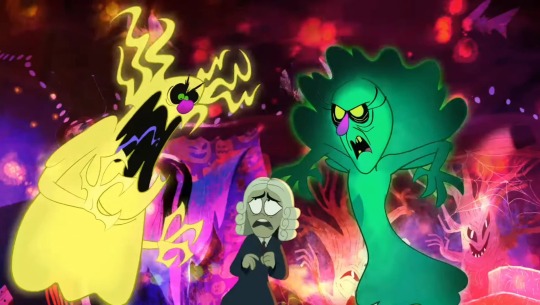



#molly mcgee#the ghost and molly mcgee#tgamm#scratch#scratch the ghost#scratch mcgee#ollie chen#geoff tgamm#howlin' harriet#sonia davis#ezekiel tugbottom#blair#sobgoblin#story sprite#frightmare#ghost shark#jinx tgamm#ghosts#pete mcgee#disney
60 notes
·
View notes
Text

92 notes
·
View notes
Photo



Various Molly sketches from early this year.
144 notes
·
View notes
Text
TGAMM alignment chart memes I made (1):
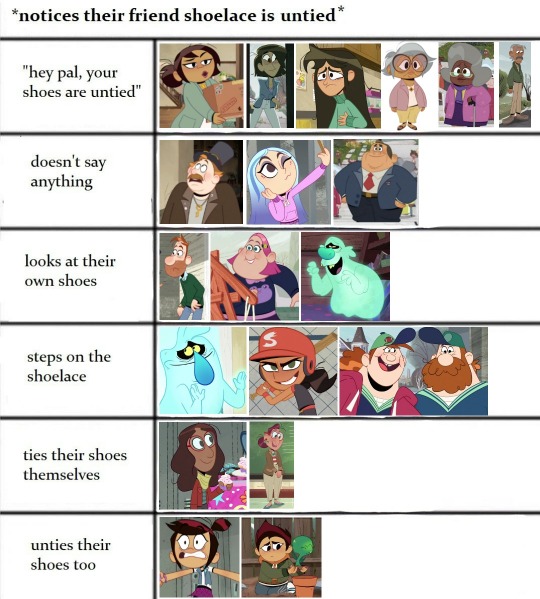
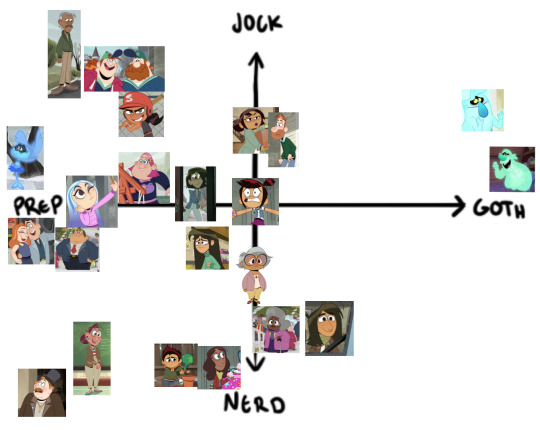
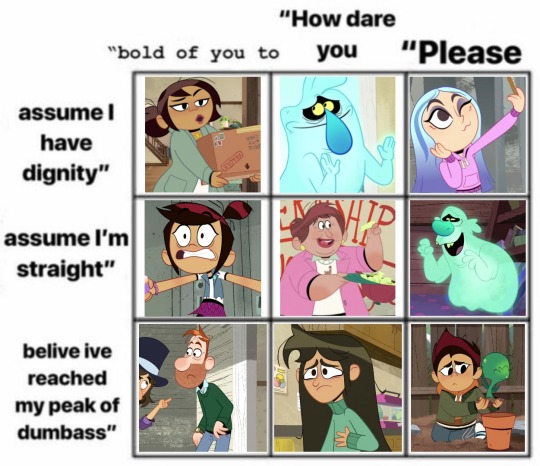
#tgamm#the ghost and molly mcgee#ghost and molly mcgee#molly mcgee#scratch mcgee#scratch the ghost#darryl mcgee#pete mcgee#sharon mcgee#andrea davenport#libby stein torres#tgamm sheela#tgamm kat#tgamm pam#tgamm geoff#jilly mcgee#billy mcgee#sonia davis#grandma nin#leah stein torres#tgamm patty#bobby daniels#tgamm tammy#weird larry#tgamm weird larry
91 notes
·
View notes
Photo

see, dearest, loving me did not save you. you scraped by just fine without. but it doesn’t hurt, does it?
#pokemon#swsh#professor sonia#gym leader nessa#aquaheartshipping#sonessa#hi. this is pre-dr.jones!sonia and callie!nessa btw#doesnt affect the piece much but I just want u to know#I love that potc made up the whole davy jones/calypso thing and I ate that shit up unquestioned#dont care it slaps it means everything to me now. next#litcherally used those vibes for like anything I can I just think that should be a thing more#but also! the original dr.jones!sonia joke has like seven extremely stupid layer that make it very dear to me#so Im not willing to let go yet. even tho dr. jones is now technically involved in a tentative thing I have on the side#along with the other two (gun haveman and the cloudwalker)#this is actually! kind of a color study again. but also I just really wanna draw the girls#I think Im just gonna spend october drawing critters and the kids in costumes. I need it#this is hopefully the first! I'll try to unclench my brain and let it do its stuff#now tho? I sleep#tomorrow I have a promising dinner to look forward to. and the next day? noodles#have a good weekend lads! doesnt hurt to have a bit of love on ur side
897 notes
·
View notes
Text
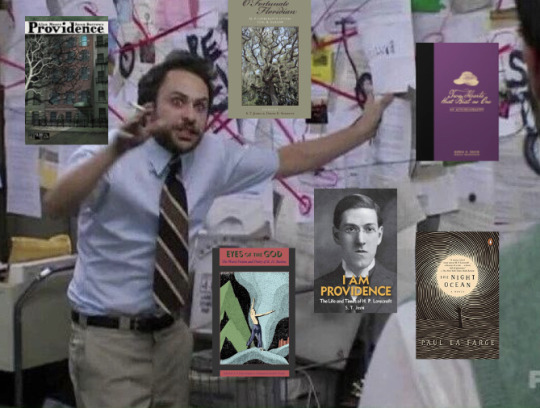
reading this shit like it’s real housewives of providence rhode island
#hp lovecraft#alan moore#providence#neonomicon#sonia h davis#rh barlow#st joshi#lovecraft#the night ocean
32 notes
·
View notes
Text
A little birdie told me that Sonia’s autobiography has been sent to the printers and is underway! 💜
#sonia h greene#autobiography#sonia greene#millinery#scholarly academia#sonia h davis#h.p. lovecraft#hp lovecraft
13 notes
·
View notes
Text










Scary Scratch! 👻
I put them in the order of which I found the most appealing! :)
So many good spooky designs, I love them sm! 😱
Gotta also love how often he chooses to be either purple or green in this form! 💜💚
"Selfie!!!! :D" ~ Molly McGee, completely unfazed by Scratch's attempts to scare her away.
"You aRE THE MOST FRUSTRATING-" ~ Scratch having zero tolerance for Molly's abundant optimism.
BONUS because these designs also deserve lots of love! 👻


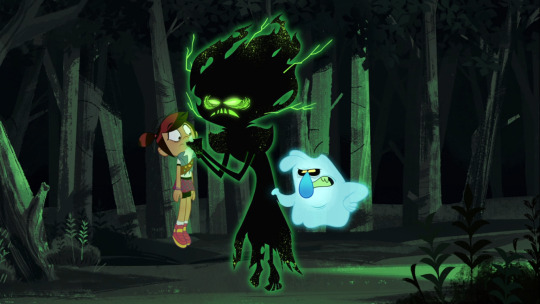

Spooky Ezekiel "Tug the Tornado" Tugbottom, Sonia Davis, Howlin' Harriet and Geoff!
#The Ghost and Molly McGee#TGAMM#TGAMM spoilers#Molly McGee#Darryl McGee#Libby Stein-Torres#**my precious children <3**#Sharon McGee#Pete McGee#TGAMM: Scratch#Scratch McGee#McGee family#TGAMM: Geoff#Ezekiel ‘Tug the Tornado’ Tugbottom#Ezekiel Tugbottom#**my husband /)w(\**#TGAMM: Sonia Davis#TGAMM: Howlin’ Harriet#screencaps
164 notes
·
View notes
Text
The First World Fantasy Awards convention was held in Providence, RI in October 1975. The rewards themselves were statuettes depicting a bust of H. P. Lovecraft by noted artist, Gahan Wilson. It occurred to me that if Sonia Greene Lovecraft Davis had lived only a few years longer- she died at age 89 - she might have been invited to the awards ceremonies to receive one of the statues for 'lifetime achievement'. Certainly her early support of the amateur fiction community and her own fiction writing efforts would have qualified for such an honor. However, the ex-Mrs Lovecraft had reasons to be bitter over her association with late husband. During the brief couple of years the pair were actually together Lovecraft was little more than a Trophy Husband. HPL contributed very little to the the family expenses and supposedly was a very cold and unenthusiastic lover. Even more egregious he had lied to Sonia about finalizing the pair's divorce papers. If Sonia had still been alive, overcome her bitterness and been healthy enough to attend the festivities I can only wonder what she might have been thinking as she held the statue of her Trophy Husband in her hands, perhaps: "What contest in hell did I win?" (With apologies to EVERYBODY LOVES RAYMOND, and all Lovecraft fankids the world over). (Exhibit 441)

10 notes
·
View notes
Photo
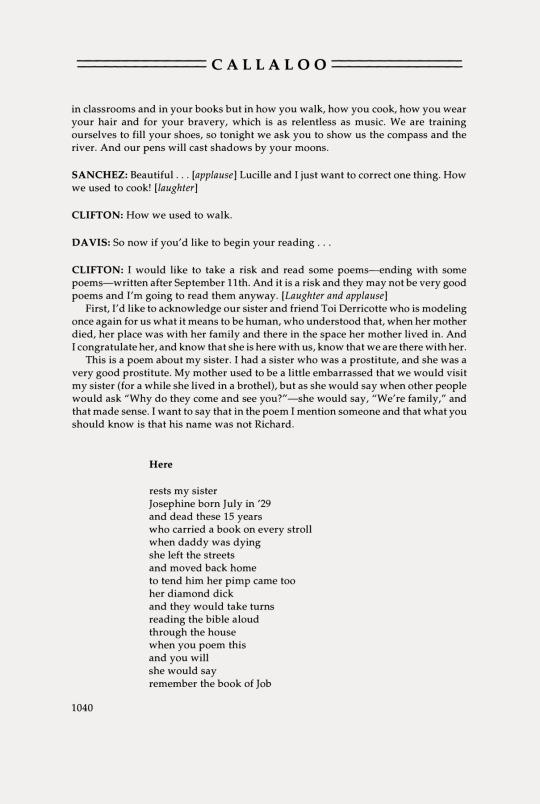
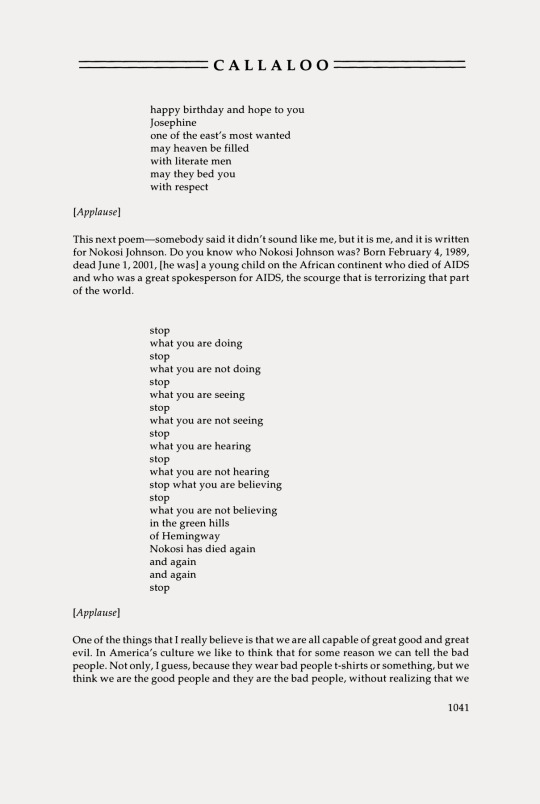
Lucille Clifton, here rests [Bibl.: Lucille Clifton, Mercy, BOA Edition, Rochester, NY, 2004], in Lucille Clifton and Sonia Sanchez: A Conversation [Moderated by Eisa Davis, The New School, New York, NY, October 24, 2001], «Callaloo», Vol. 25, No. 4 (Autumn, 2002), Johns Hopkins University Press, Baltimora, MD, [pp. 1038-1074], p. 1040-1041 (youtu here)
#graphic design#reading#poetry#video#school#journal#lucille clifton#sonia sanchez#eisa davis#cave canem#callaloo#johns hopkins university press#2000s
18 notes
·
View notes
Text
The many ghosts of Brighton.










(I do love after summoning the Ghost Shark and making it friendly, Scratch actually kept it as a pet in later episodes)
#the ghost and molly mcgee#tgamm#molly mcgee#scratch#scratch mcgee#scratch the ghost#darryl mcgee#geoff tgamm#jeff tgamm#abraham lincoln#cleopatra#howlin' harriet#ezekiel tugbottom#sonia davis#jinx tgamm#the chairman#sobgoblin#story sprite#blair#ghost shark#ghosts#disney
28 notes
·
View notes
Text
The Supreme Court’s announcement on Thursday that it will hear Moore v. Harper, a case that could concentrate an unprecedented amount of power in gerrymandered state legislatures, should alarm anyone who cares about democracy.
The case is perhaps the gravest threat to American democracy since the January 6 attack. It seeks to reinstate gerrymandered congressional maps that were struck down by North Carolina’s highest court because they “subordinated traditional neutral redistricting criteria in favor of extreme partisan advantage” for the Republican Party.
The plaintiffs argue that the state supreme court didn’t have the authority to strike down these maps, and rest their claim on legal arguments that would fundamentally alter how congressional and presidential elections are conducted.
Moore involves the “independent state legislature doctrine,” a theory that the Supreme Court has rejected many times over the course of more than a century — but that started to gain steam after Republican appointees gained a supermajority on the Supreme Court at the end of the Trump administration.
Under the strongest form of this doctrine, all state constitutional provisions that constrain state lawmakers’ ability to skew federal elections would cease to function. State courts would lose their power to strike down anti-democratic state laws, such as a gerrymander that violates the state constitution or a law that tosses out ballots for arbitrary reasons. And state governors, who ordinarily have the power to veto new state election laws, would lose that power.
As Justice Neil Gorsuch described this approach in a 2020 concurring opinion in a case concerning the deadline for casting mail-in ballots in Wisconsin, “the Constitution provides that state legislatures — not federal judges, not state judges, not state governors, not other state officials — bear primary responsibility for setting election rules.”
Four Justices — Gorsuch, plus Clarence Thomas, Samuel Alito, and Brett Kavanaugh — have all endorsed some version of this independent state legislature doctrine. Meanwhile, four other Justices, the three liberal Justices plus Chief Justice John Roberts, have signaled that they will not overrule the Court’s many precedents rejecting this doctrine.
That most likely leaves the fate of American democracy in the hands of Justice Amy Coney Barrett, a Trump appointee who typically votes with Republicans in election cases.
This said, it is unclear whether this Supreme Court would implement the most extreme version of this doctrine — with a rigid rule that a state supreme court can never strike down a state election law, or that a state governor can never veto an election bill — or a less extreme one.
Last March, the Moore case appeared on the Court’s “shadow docket.” Although a majority of the Court voted to temporarily turn the case away — with Kavanaugh explaining that he voted to do so because the case arrived at the Court at the wrong time — Alito wrote a dissenting opinion saying that he would have immediately reinstated North Carolina’s gerrymandered maps. His opinion also suggests that he wants to give himself and his fellow Justices maximal flexibility to overrule state court decisions that he does not like.
So under Alito’s approach, pro-democracy state constitutional provisions might not cease to function altogether, they would only cease to function when Alito and four of his fellow Republican colleagues wish to suspend them.
Needless to say, the stakes in Moore are exceedingly high. The Court’s decision in Moore could potentially neutralize many states’ efforts to combat partisan gerrymandering. And in key swing states like Michigan, Pennsylvania, and Wisconsin — where Republicans control the state legislature and Democrats control either the governor’s mansion, the state supreme court, or both — Moore could give the Republican Party unlimited control over how federal elections are conducted.
THE INDEPENDENT STATE LEGISLATURE DOCTRINE, BRIEFLY EXPLAINED
The independent state legislature doctrine derives from a deceptively simple reading of the Constitution, which states that “the times, places and manner of holding elections for Senators and Representatives, shall be prescribed in each state by the legislature thereof.” A separate provision says that presidential elections shall also be conducted in a way determined by the state “Legislature.”
One way to read these provisions — the way that Thomas, Alito, Gorsuch, and Kavanaugh have suggested it should be read — is to say that only the body of representatives that is often described as a state’s “legislative branch” can set election rules. And that the executive branch (including the governor) and the judicial branch (including the state supreme court) may be cut out of this process entirely.
But the Supreme Court has repeatedly rejected this theory. The issue first arose in Davis v. Hildebrant (1916), which upheld a provision of the Ohio constitution permitting the people of the state to veto state election laws via a popular referendum.
Davis reasoned that the word “legislature,” as it is used by the relevant provisions of the Constitution, does not refer exclusively to the elected body of representatives who make up the state’s legislative branch. Instead, it refers more broadly to any individual or body that possesses some part of the power to make laws within a state — what the Court referred to as the “legislative power.”
Davis explained that, under Ohio’s constitution, “the referendum was treated as part of the legislative power,” and thus “should be held and treated to be the state legislative power for the purpose of creating congressional districts by law.”
This is the only reading of the relevant US constitutional provisions that makes sense because, as legal scholars (and brothers) Vikram David Amar and Akhil Reed Amar explain in a recent paper, “state people and state constitutions are masters of state legislatures,” and not the other way around.
That is, each state has the power to define, through its constitution, which body or group of bodies possesses the “legislative power” — the power to make laws. A state constitution can assign that power entirely to a body of elected representatives, but it can also give part of that power to the state governor, the state courts, to a redistricting commission, or to the people themselves through ballot initiatives and referendums.
Indeed, this is exactly how most state governments work. State constitutions — like the federal Constitution — typically permit the state’s chief executive to veto election laws. And they typically give state courts the power to resolve conflicts about how to interpret the state constitution and existing state election laws.
As the Amars write, “since the Revolution, every state legislature has been defined and circumscribed, both procedurally (e.g., What counts as a quorum? Is the governor involved in legislation?) and substantively (e.g., What rights must the legislature respect?) by its state constitution.”
The Court’s holding in Davis has been upheld many times since that decision was handed down. Most recently, in Arizona State Legislature v. Arizona Independent Redistricting Commission (2015), the Court upheld Arizona’s decision to use a bipartisan commission to draw congressional maps. In that case, the Court explained that “our precedent teaches that redistricting is a legislative function, to be performed in accordance with the State’s prescriptions for lawmaking, which may include the referendum and the Governor’s veto.”
THE COURT’S DECISION TO HEAR THE MOORE CASE IS VERY ODD
Since four justices have already called for cases like Davis and Arizona State Legislature to be overruled or significantly altered, it’s not surprising that the Court decided to hear a case that could potentially do so — under the Supreme Court’s rules, four votes are needed to place a case on the Court’s docket of cases that receive full briefing and oral argument.
But it is surprising that the Court thought Moore was an appropriate vehicle to hear an independent state legislature doctrine case. That’s because, even if you accept Gorsuch’s theory that the state legislature and not the state judiciary bears “primary responsibility for setting election rules,” the North Carolina legislature explicitly authorized its state’s courts to hear gerrymandering lawsuits.
In other words, even if the independent state legislature doctrine is valid, North Carolina’s courts are still allowed to decide gerrymandering cases because the state legislature told them to do so.
North Carolina law provides that lawsuits challenging “any act of the General Assembly that apportions or redistricts State legislative or congressional districts” may be filed “in the Superior Court of Wake County and shall be heard and determined by a three‑judge panel.” This court’s decision may then be appealed to the state supreme court.
Indeed, North Carolina’s laws — again, laws that were written by the state legislature — provide detailed instructions on how state courts should behave when they determine that a legislative map is illegal. One statute requires state courts to “find with specificity all facts supporting” its conclusion that a map is illegal. Another provides that, after a state court strikes down a redistricting plan, it may not “impose its own substitute plan unless the court first gives the General Assembly a period of time to remedy any defects identified by the court.”
In its eagerness to hear an independent state legislature doctrine case, in other words, the Supreme Court appears to have taken up a case where there is no legitimate legal conflict. Even if state legislatures have exclusive authority to shape a state’s election law, the North Carolina state legislature used this authority to explicitly empower state courts to strike down gerrymandered maps.
And yet, it’s hard to imagine why the Court would agree to hear this case unless it is at least considering rolling back decisions like Davis and Arizona State Legislature.
#us politics#news#vox#2022#us supreme court#scotus#Moore v. Harper#Justice Neil Gorsuch#justice clarence thomas#justice samuel alito#justice brett kavanaugh#justice amy coney barrett#justice sonia sotomayor#chief justice john roberts#justice elena kagan#justice ketanji brown jackson#election laws#gerrymandering#state and local government#Davis v. Hildebrant#us constitution#state constitutions#Vikram David Amar#Akhil Reed Amar#Arizona State Legislature v. Arizona Independent Redistricting Commission
75 notes
·
View notes
Text

Most Famous Modern Art Artists and Artwork of All Time
2/9/2024
♦ Framed Poster Print
♦ Canvas Print
♦ Metal Print
♦ Acrylic Print
♦ Wood Prints
🌐 Worldwide shipping
#avigdor arikha#bruce nauman#christo#danielle kroll#nicoletta boris#thomas ruff#robert morris#sean scully#simon patterson#william kentridge#alan sonfist#aris kalaizis#syd solomon#stuart davis#darren almond#joep van lieshout#sonia delaunay-terk#lawrence weiner#marie-jo lafontaine#mariko mori
3 notes
·
View notes
Photo

WONDER 2017
They, my friend, are saying a lot of things, none of which concerns us. Let's see your Minecraft world, 'cause we might be moving to it.
#wonder#2017#jacob tremblay#noah jupe#julia roberts#owen wilson#izabela vidovic#mandy patinkin#daveed diggs#sonia braga#danielle rose russell#nadji jeter#bryce gheisar#millie davis
7 notes
·
View notes
Link
Randeep Hooda, Daphne Alexander, Sonia Goswami, Arun Govil, Tahir Ashraf, Malcolm Davies, Adil Hussain, Shipra Jain, Sapna Pabbi, Xavi Nixon, Hiten Patel, Kirstie Pooley, Richa Prakash, Matthew Thomas-Robinson
#Randeep Hooda#Daphne Alexander#Sonia Goswami#Arun Govil#Tahir Ashraf#Malcolm Davies#Adil Hussain#Shipra Jain#Sapna Pabbi#Xavi Nixon#Hiten Patel#Kirstie Pooley#Richa Prakash#Matthew Thomas-Robinson
0 notes
Text
Today your miserly grandpa was admittedly somewhat befuddled by a strange and whimsical occurrence which took place on the oft-criticized - albeit oft-lauded by those of us foolish enough to frequent its hallowed halls - website of Tumblr.com. Logging on this dreary morning with all the aplomb of a great old shoggoth beset with tuberculosis, I found what else but that which appeared to be a small colorless and irregular oval with a greenish screen affixed to its surface, and, if you’ll excuse my disdain, the word “boop-o-meter” carved in bas-relief in a typeface much too small for even the most tenacious of readers to even dream of reading with any reliable clarity. Within that greenish, glowing screen which seemed to taunt me with all the patience of some great cat hiding under the cover of the jungle canopy, were titles which seemed to denote categories including “given”, “received”, and “global”, all of the values for which were notably zed. I must say I found all this rather perplexing, and I was too set in my ways - as you know - to give much thought to this new and strange development on my dash, and as such it was not until much later, and by much later I mean tonight when SH sent her first BOOP that I realized that this “boop-o-meter” was a means of cataloguing good natured and playful smacks reminiscent of the soft yet firm whacks that a creature of the felid variety might deliver to one of their own, or nay, to one of us! Indeed, since SH’s initial BOOP, I myself have sent a good 200 to Klarkash-Ton, Loveman, Barlow, and the rest of them. It has been a truly good day by all accounts, and I should hope that your boop day has been just as satisfactory.
Yours most sincerely,
HP Lovecraft
#hp lovecraft#lovecraft#sonia h davis#providence#rh barlow#Samuel Loveman#clark ashton smith#yeah I’m out here rping this bastard I’m fuckiny sorry it was fun and funny#sonia haft greene lovecraft davis#cthulhu mythos#cthulhu#voluminous podcast
14 notes
·
View notes